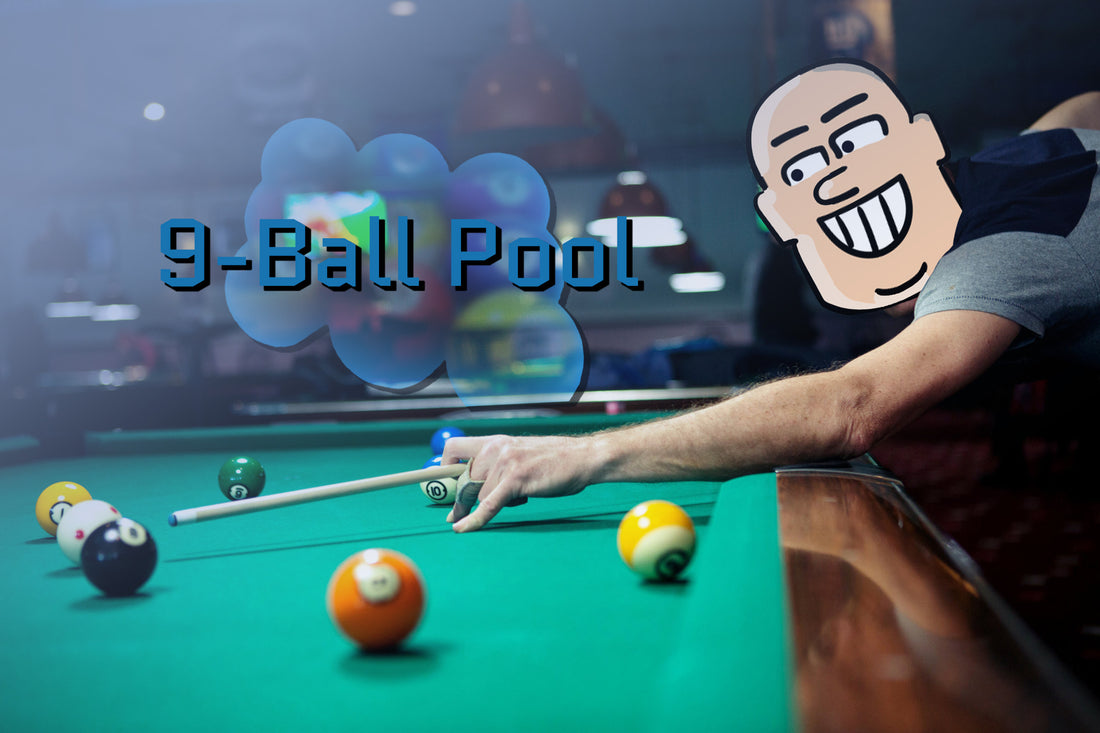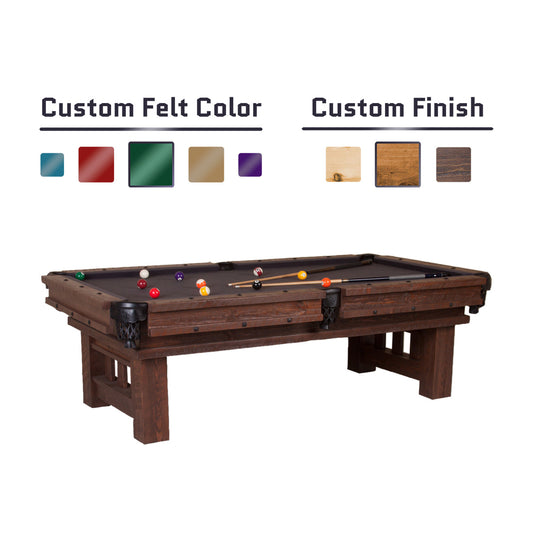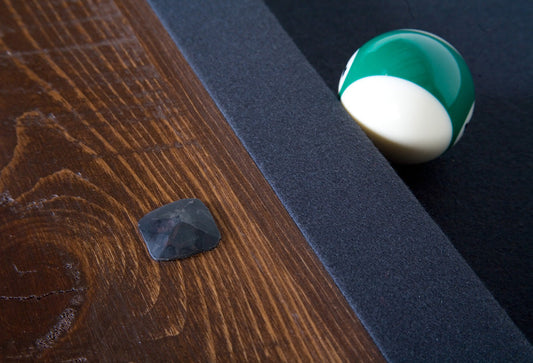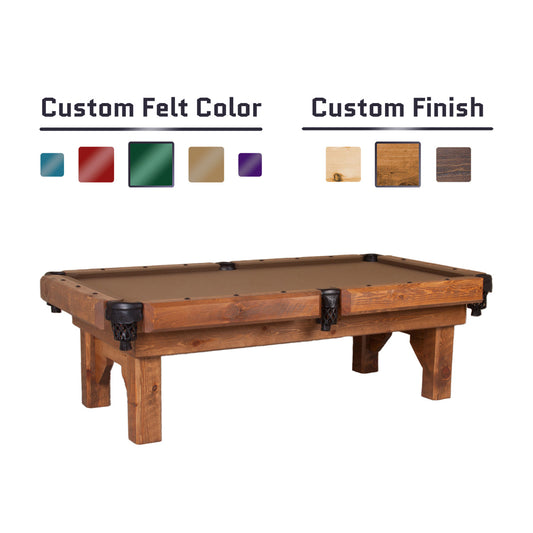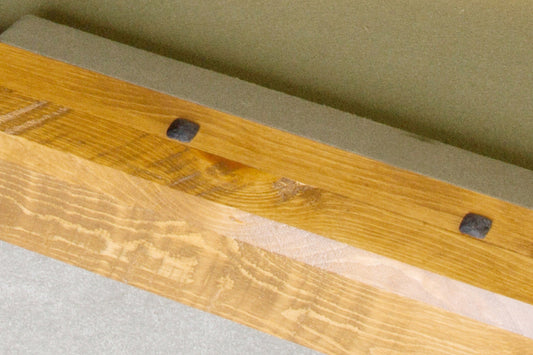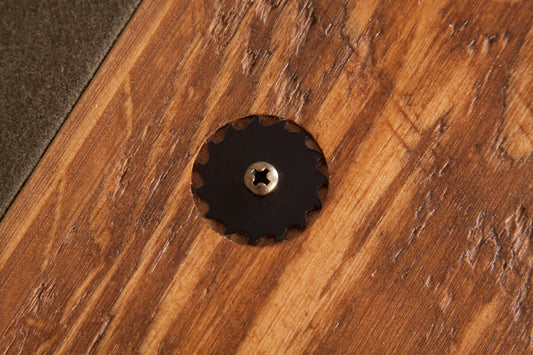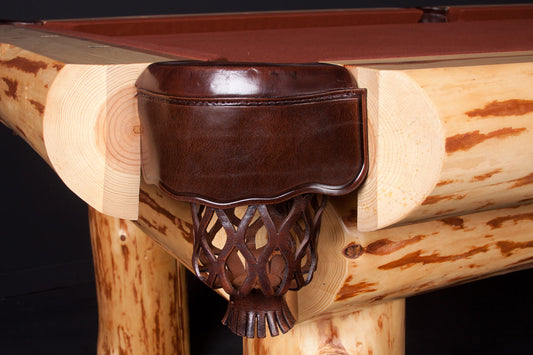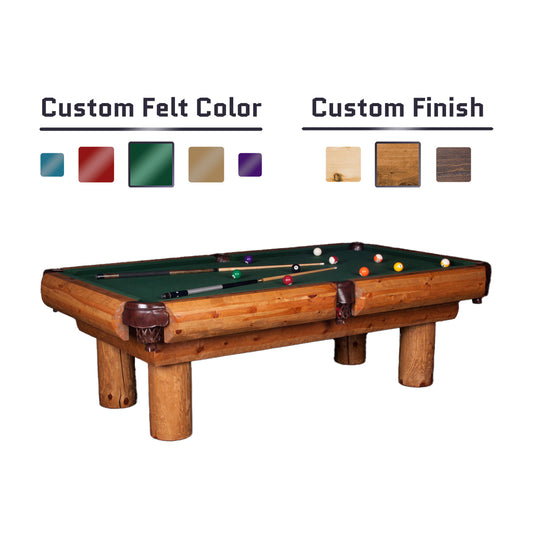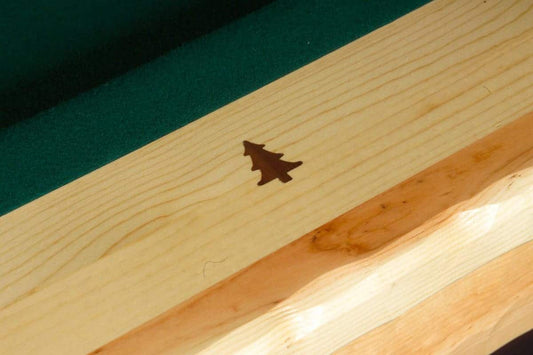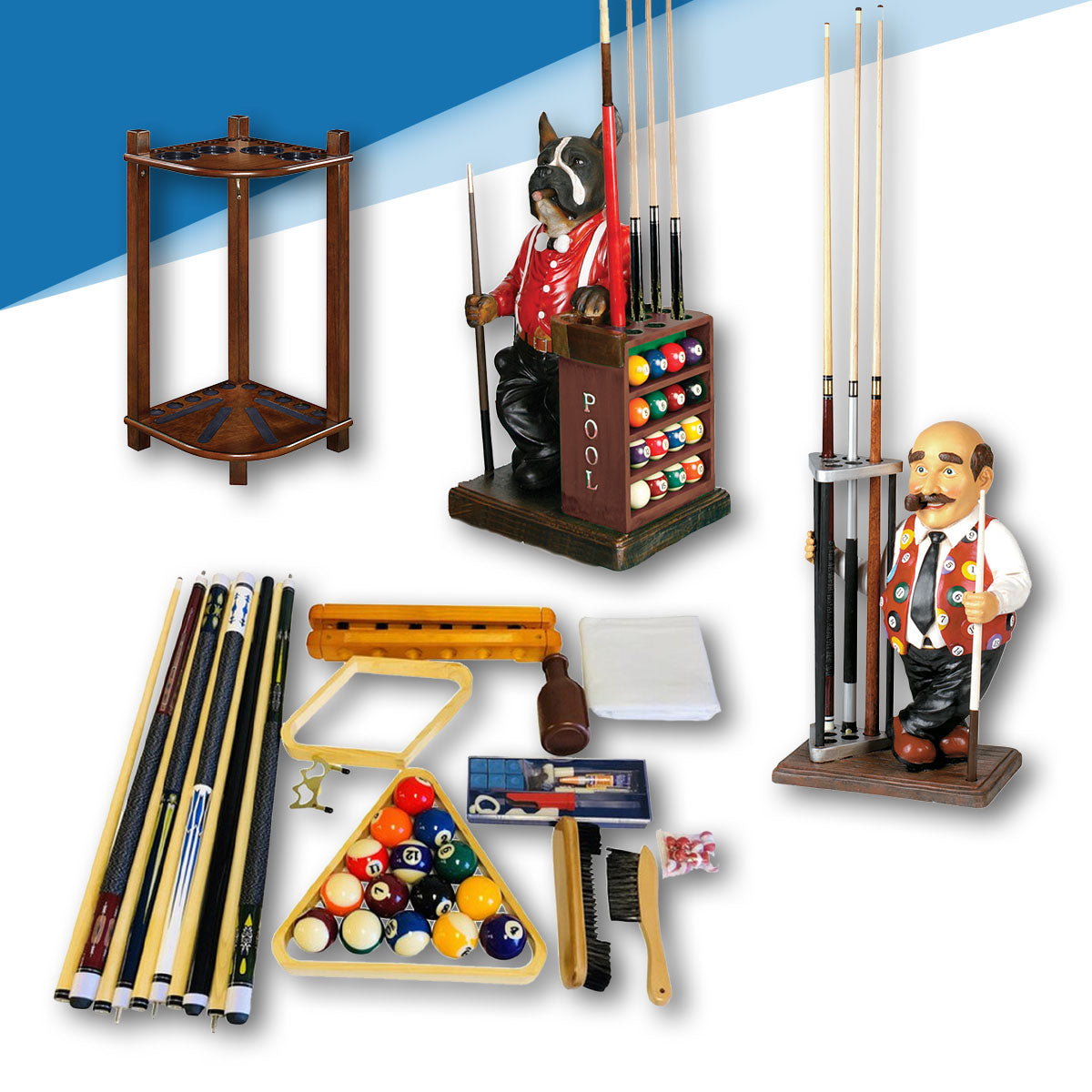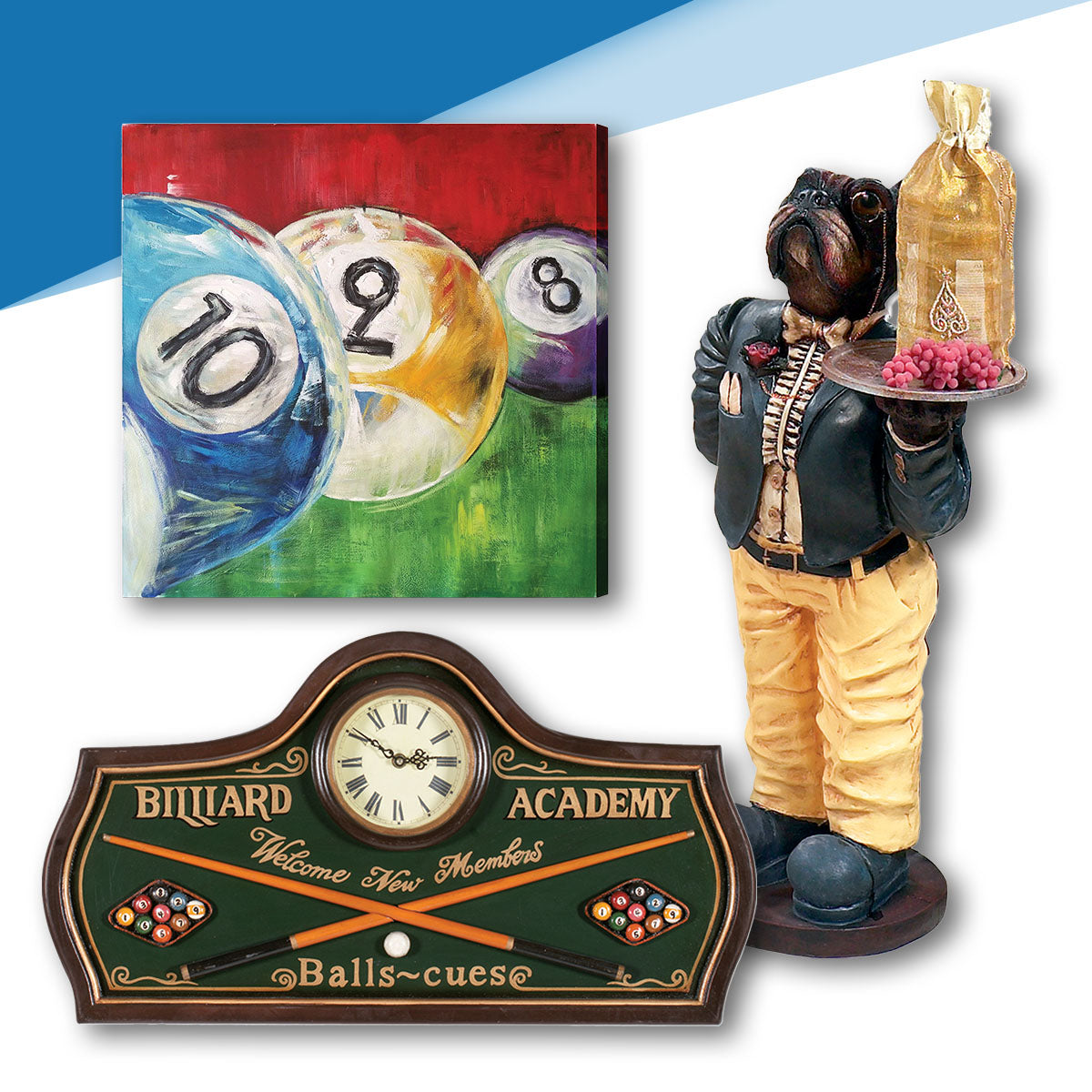Written by Daddy Cappuccino
7-minute read
Welcome back, fellow cue enthusiasts! 🍻 Today, we're diving headfirst into the thrilling world of 9 ball pool. If you're a fan of the classic game of billiards, you're in for a treat. But if you're new to this exciting cue sport, don't fret. We've got your back with everything you need to know to become a 9 ball pool maestro.
In this comprehensive guide, we'll walk you through the rules, strategies, and tips for playing 9 ball pool like a seasoned pro. Whether you're a casual player looking to up your game or a beginner eager to learn the ropes, our poolside chat is packed with all the juicy details.
So, grab your cue, chalk up that tip, and let's break down the game of 9 ball pool, one shot at a time.
Table of Contents
- Introduction to 9 Ball Pool
- How to Play 9 Ball Pool: Basic Rules
- Advanced Tips for 9 Ball Pool
- Conclusion
1. Introduction to 9 Ball Pool
Before we start sinking those 9 ball pool shots like pros, let's begin with a brief introduction to the game. If you're new to 9 ball pool, think of it as the sleeker, faster-paced cousin of the more traditional 8 ball pool. This game is all about precision, strategy, and, of course, a touch of finesse.
The Basics of 9 Ball Pool
In 9 ball pool, you aim to pocket the balls in ascending numerical order, from 1 to 9. That might sound straightforward, but here's the twist: you must always strike the lowest-numbered ball on the table. It's like a cue sport version of a countdown. Should you miss a shot or commit a foul, your opponent will then take their turn.
The Mighty 9 Ball
Now, let's talk about the star of the show, the 9 ball. This ball has a special place in the game. You won't just pocket it whenever; it's the last ball you should sink. And here's the kicker: if you pot the 9 ball before hitting the lowest-numbered ball on the table, you don't win; in fact, it is considered a foul and the 9 ball is spotted. If the nine ball is pocketed on a foul, it is spotted by placing it on the long string (long axis of the table) as close as possible to the foot spot and between the foot spot and the foot rail, without moving any interfering ball.
Racking It Up
Speaking of the balls, they're racked up in a diamond shape at the beginning of each game. If you're a bit rusty on your racking skills, don't forget to check out our detailed guide on How to Rack Pool Balls Like a Pro for a refresher.

Now that we've got the basics down, it's time to jump into the nitty-gritty of 9 ball pool. In the following sections, we'll explore the rules, strategies, and some insider tips to elevate your game. So, chalk up your cue, and let's move on to the next rack!
2. How to Play 9 Ball Pool: Basic Rules
Playing 9 ball pool is like learning a new language. It's all about understanding the rules and strategy. So, grab your cue, and let's decode the game together.
For an in-depth look, make sure you check Billiard Congress of America and World Pool-Billiard Association rules on their website.
🎱 Objective of the Game
The main goal of 9 ball pool is to pocket the balls in numerical order, starting from the 1 ball and ending with the elusive 9 ball. You must legally strike the lowest-numbered ball on the table. The player who pockets the 9 ball wins the game, regardless of how many other balls they may have previously sunk. So, it is possible for one player to sink the first 8 balls, and then the other player can score the 9 and claim victory.
🎱 Legal Break Shots
The rules for the break shot in 9-ball pool are similar to regular shots, with a few key differences:
- The player breaking must first strike the 1-ball and either pocket a ball or drive a minimum of four numbered balls to the rail.
- If the cue ball is pocketed or knocked off the table during the break, or if the opening break requirements are not met, it's considered a foul. The incoming player gains cue ball in hand, allowing them to place it anywhere on the table.
- If, during the break shot, an object ball jumps off the table, it's also considered a foul. The incoming player then gets cue ball in hand. Notably, the object ball is not placed back on the table, with the exception of the 9-ball, which is spotted (returned to play on the table) if it leaves the table.
🎱 Legal Shots: Avoiding Fouls
To keep things fair and square, the game has some rules about what constitutes a legal shot. After a foul, your opponent gets ball in hand, meaning they can place the cue ball anywhere on the table.
These are the most common fouls:
- Missing the lowest-numbered ball entirely.
- Potting the cue ball.
- If no object ball is pocketed, failing to drive the cue ball or any numbered ball to a rail after the cue ball contacts the object ball.
- Driving an object ball off the table (the jumped object ball(s) is not spotted unless it is the 9-ball).
One exciting aspect of 9 ball pool is that after you legally pot a ball, you continue your turn until you miss or foul. This can result in some impressive streaks and strategic shots.
🎱 Winning the Game
You can win a game of 9 ball pool in several ways:
- By legally potting the 9 ball after all the other balls have been successfully pocketed in numerical order.
- Winning is also possible by potting the nine ball through a combination shot, but there's a crucial condition: the initial ball struck must always be the lowest-numbered ball currently in play. For instance, if the nine ball is positioned near a pocket, and you strike the one ball into the nine, causing the nine ball to be pocketed, you immediately win the game.
- If the nine ball is sunk on the break, the breaker wins the game.
- If your opponent fouls three consecutive times on three successive shots without making an intervening legal shot.

Now that we've cracked open the rulebook, you're well on your way to becoming a 9 ball pool pro. In the next section, we'll explore some tips and strategies to sharpen your skills and up your game.
3. Advanced Tips for 9 Ball Pool
Now that you've got a solid grip on the basic rules and gameplay of 9 Ball Pool, it's time to up your game with some advanced tips and strategies. These tips will help you gain an edge over your opponents and enhance your overall performance on the table.
Master the Break Shot
The break shot in 9 Ball Pool is critical, as it sets the tone for the entire game. To excel at the break, focus on the following:
- Cue Ball Placement: Aim to position the cue ball in the center of the table, slightly off-center towards the head rail. This placement gives you more control and increases the chances of sinking the 1 ball.
- Consistency: Develop a consistent and powerful break. Practice your break shot regularly to achieve better control over the cue ball's speed and direction.
- Mind the 9 Ball: Keep an eye on the 9 ball during the break. If you can sink it, you win the game instantly. However, this is challenging, so it's essential to weigh the risk and reward.
Shot Selection and Position Play
- Plan Ahead: Like chess, 9 Ball Pool is a game of strategy. Think several shots ahead, considering the position of balls after each shot. This foresight will help you set up easy shots and avoid difficult ones.
- Defensive Play: Don't always go for the most aggressive shots. Sometimes, it's better to play defensively, blocking your opponent's easy shots or leaving them with a tough position.
Safeties and Controlling the Cue Ball
- Safety Shots: Learn how to play safe. Safeties involve leaving your opponent in a challenging position, making it hard for them to make a legal shot. This can force errors and give you an advantage.
- Cue Ball Control: Mastering cue ball control is essential for advanced play. Practice various spin techniques (top spin, bottom spin, left and right sidespin) to precisely position the cue ball for your next shot.
Know Your Opponent
- Observation: Pay attention to your opponent's strengths and weaknesses. Are they consistent with their shots? Do they struggle with long shots or certain angles? Tailor your strategy accordingly.
Stay Calm Under Pressure
- Maintain Composure: As games progress, the pressure can mount. Stay calm and focused, even if you're behind. Panic can lead to poor decisions and missed opportunities.
Remember, becoming proficient at 9 Ball Pool takes practice and patience. Don't get discouraged by losses; instead, use them as opportunities to learn and improve your skills. With dedication and these advanced tips, you'll become a formidable player in no time.
4. Conclusion
9 Ball Pool is a thrilling and dynamic cue sport that requires skill, strategy, and a good understanding of its unique rules. From the break shot to the final 9 ball, each aspect of the game presents exciting challenges and opportunities for players of all levels. By mastering the basic rules, practicing your shots, and keeping these advanced tips in mind, you can elevate your 9 Ball Pool game to a whole new level. So, grab your cue, chalk up, and get ready to sink that 9 ball for a satisfying victory.
🍻 Cheers to your billiards journey and see you in the next article!

